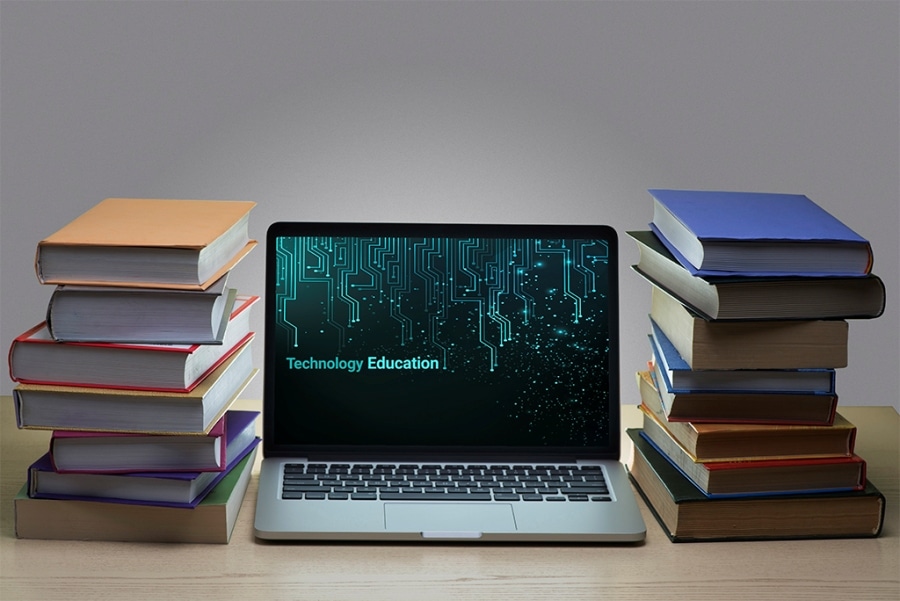
The future of education in an era of ‘net generation’ would essentially mean ‘access and ease of learning’: block by block, synergistic and responsive to individual needs. The entire system in such a disruptive design where learning would be filtered to adapt would thus, become a social activity, writes Tamanna Shah, Head – Policy Advocacy and Research, IL&FS Education, for Elets News Network (ENN).
Having worked for companies that aid social innovation in education, I often contemplate if technology is a ‘disruptor’ or a ‘facilitator’ for the future world of education.

The world is abuzz with the Fourth Industrial Revolution steered by the interaction of the cyber and physical systems. We improve our business models to keep pace with these global changes. Scholars have also been continually weighing impact and the probable fate of education and the other sectors. It is a pre-requisite of the digital age to acquire new approaches to teaching and learning that respond to the current and future needs of students. Today’s students are fundamentally different from students of yesteryears as they interface with screens more frequently than ever. They have access to the global community without leaving their homes. Yet, we continue to teach these tech-savvy students using the same pedagogical methods developed decades ago. Adaptation to the technology permeates almost every industry and so it does in the educational setting as well.
However, in the context of a developing country like India and the growing need to embed technology into education coupled with poor student-teacher ratios and low percentage of trained teachers, does it only put pressure on the education system? Have we done enough to sensitize the education system to the changing world of work and the demands on education?
Society in a developing world is harder to mould because of the traditional belief systems and norms despite the country having made scientific breakthroughs. Schooling today is an attempt to make mini-scholars out of students by giving them doses of what was meant by scholarship in the eighteenth and nineteenth centuries. Students in today’s classrooms are the first generation to grow up with such a vast array of information technologies. Schools need to therefore, cope with these changes and bridge the gap between the world outside school and inside school. A possible solution, explored globally is innovation in education technology and the development of distance learning, e-learning, mobile learning and ubiquitous learning. Online, open and flexible learning create a digital ecosystem that fosters competency by combining an intentional and transparent approach to curricular design with an academic model in which the time it takes to demonstrate competencies varies and the expectations about learning are held constant.
Therefore, as innovators and practitioners we need to actively become ‘facilitators in a disruptive era’. India creates such an ecosystem through public and private partnerships and assimilates the transformative power of education technology. Central government’s online programmes like e-Education and e-Pathshala, developed by NCERT, help disseminate educational e-resources including textbooks, audio, video, periodicals and a variety of other print and non-print materials through website and mobile app.
Reforms aim at developing a generation of life-long learners who think critically, are creative and innovative, and solve contemporary problems to meet the future needs of the global economy. It is the improvement in the learning outcomes of the students as a result of the blend of technology with traditional teaching methodologies which makes a global 21st century ready netizen. Ideas and policies are adapted to the local needs and assimilated within the larger educational system in which we educate.
Remarkable initiatives that facilitate an Edutech environment comes in the shape of ‘Geneo’, a personalized digital learning platform for the K-12 segment launched by IL&FS Education and powered by Google for Education. There are other e-learning and skills development start-ups like Simulanis that use augmented and virtual reality technologies and develop gamified content and Educe that ‘Mind Maps’ the school syllabus. These are excellent education technology solutions that provide a multi-sensory experience to improve students’ learning style while ensuring ease of learning.
Such e-learning products helps students leverage the internet through a blended learning model that integrates face-to-face mentor support and interactive content. These platforms mark the beginning of Edutech solutions that put together a set of tools for the learners in one platform that is repeatable and sharable, and hence ‘democratize access to high quality content and ensure ease of learning’ to the low income communities and rural students. A student-centred approach enhances reflection and autonomy, as students assume more responsibility in the instructional sequences they are engaged in.
Virtual learning environments have become viable models for instruction delivery. There is a growing body of research that reflects how online instruction supports greater access to equitable learning outcomes to students that may not otherwise benefit from the formal education options. Designing ‘On-the-Go’ Edutech innovative solutions for the next generation addresses the education needs of a diverse nation like India. The dual challenge of addressing a diverse nation and improving learning outcomes for the children of India can be addressed through such innovative platforms that facilitate personalized blended learning. These are made available at different levels of understanding and in vernacular languages to scale accessibility.
Looking to the Future in a Positive Way
Numerous research reports on the future of jobs and skills have implications for education systems, employers, and individuals. Vocational training, learning and development programmes emerge as the key requirements to upscale today’s workforce. The future needs of the education system are assessed below:
- Moving beyond generic definitions of “21st Century Skills”: Education systems need to support better understanding, teaching practice, and assessment of the granular skills that will be in greater demand.
- Developing pedagogies to support dynamic knowledge and skill development: Educational institutions will need to provide support to educators as they are asked to teach these new skills. This could require significant retooling of teacher education or faculty incentives in educational institutions.
- Adapting faster to the changing needs of the labour markets: One thing that is clear from the research is that the pace of change will continue to accelerate. Education systems developed 20-30 years ago will actually need to plan for a future 20-30 years away.
- Offering more flexible and adaptive pathways: As the pace of change accelerates, learners will demand more ways to convert learning to earning. Although there will likely always be some demand for traditional brick-and-mortar experiences, more learners will want accelerated and flexible pathways, such as credentials or badges.
Edutech innovations: ‘Purposeful’, ‘Robust’ and ‘Disciplined’
Technology as a carrier of dissemination of knowledge requires policy makers and innovators to create a robust approach to innovation and impact. Schools do not have the capacity to look purposefully for innovations to adopt, nor the incentive or the infrastructure to innovate on behalf of the wider system. Therefore, what India really needs is support and scaling technological innovations that improve educational attainment in schools or through informal learning channels.
Be a part of the Solution
In a high-tech economy, technological innovation needs to move hand in hand with investing in teachers, which is a far better long-term solution. Students will be made future ready through a blend of technology and teachers, the best of both worlds which will be needed to teach future generations.
The future of education is ‘access,’ collaboration’ and ‘anywhere learning’. We need to harness the power of technology for greater social good. It is imperative that we not chose between education and technology; rather focus on each of these synergistically. In transforming the Indian education landscape, a holistic approach that builds human capital and promotes efficient use of technology for learning is therefore, crucial.
Our innovations need to be rooted in evidence of impact, informed practices and tailored approaches to ensure replicability. With the growth of the evidence base, people will understand and share similar values as voiced by the edutech innovations. Innovations can then be scaled to help reduce attainment gap and support students with special educational needs and disabilities. As Bruce Mau rightly said, “It’s not about the world of design; it’s about the design of the world”, a design in which we need to be part of the solution to co-create a sustainable world.




















